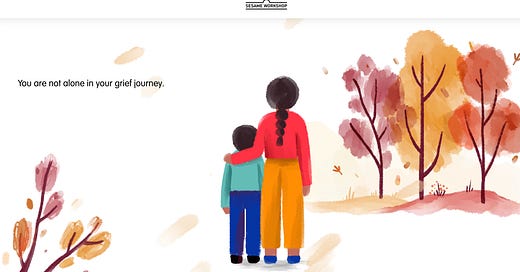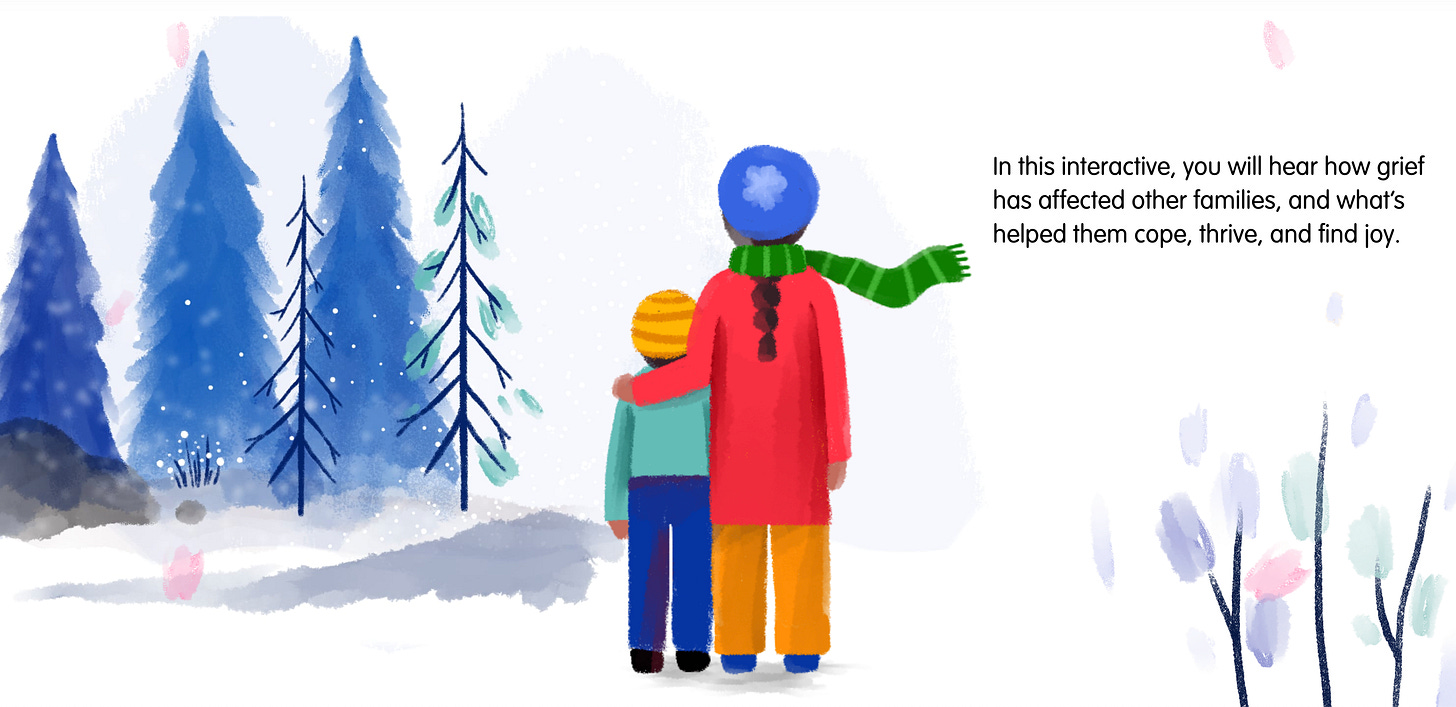From Elmo To Sesame Workshop: A New Approach To Grief And Mental Health
It's been a big week for the Sesame Street-adjacent
It was hard to miss Elmo last week. He was on CNN, TODAY, and probably your entire social media feed.
As someone who writes about mental health often, I loved it. Elmo’s encouraging take on checking in with ourselves and each other really platformed mental health for people of all ages.
So, I was already riding on the Sesame Street love parade when a friend shared this Sesame Workshop project with me. Sesame Workshop partnered with the New York Life Foundation and a handful of grieving families to pull together a grief journey roadmap.
The design is beautiful, but most importantly, it’s approachable. It’s pretty. It’s engaging. It doesn’t feel like something you should feel ashamed or sad to be scrolling through, which hit me right in the gut.
I had just turned ten years old when my mom died. In the year that followed, the only place I could openly say that I was grieving was in the backroom of the school gym where the school’s guidance counselor’s office was. Every time I think about how scared and alone I felt during that time, I also think of how dark and scary that backroom felt. I didn’t get the chance to have a brighter, more approachable vessel for my grief until I was in my twenties and sought out therapy.
In the two decades since I lost my mom, I’m heartened that children and their caretakers have a brighter space to start finding the light.
This resource may not speak directly to your life, but you may know someone who would benefit from its guidance. Or maybe it could heal a bit of your inner child the way it did for me.
👇 What I’ve Written Lately👇
Book Review: Hidden Potential by Adam Grant
I finished Adam Grant’s Hidden Potential: The Science of Achieving Greater Things at the end of January, and it left me feeling like I could do big things this year, which I think is how you want to feel at the end of reading a more personal development type book.
Don't Let January Fool You, You're Right On Track
The end of January is upon us, and if you only read this sentence, I want you to know that it takes a minimum of 10 weeks to get a habit to stick not 21 days. You haven’t failed at starting a new habit or breaking old ones. You still have so much time to try.








